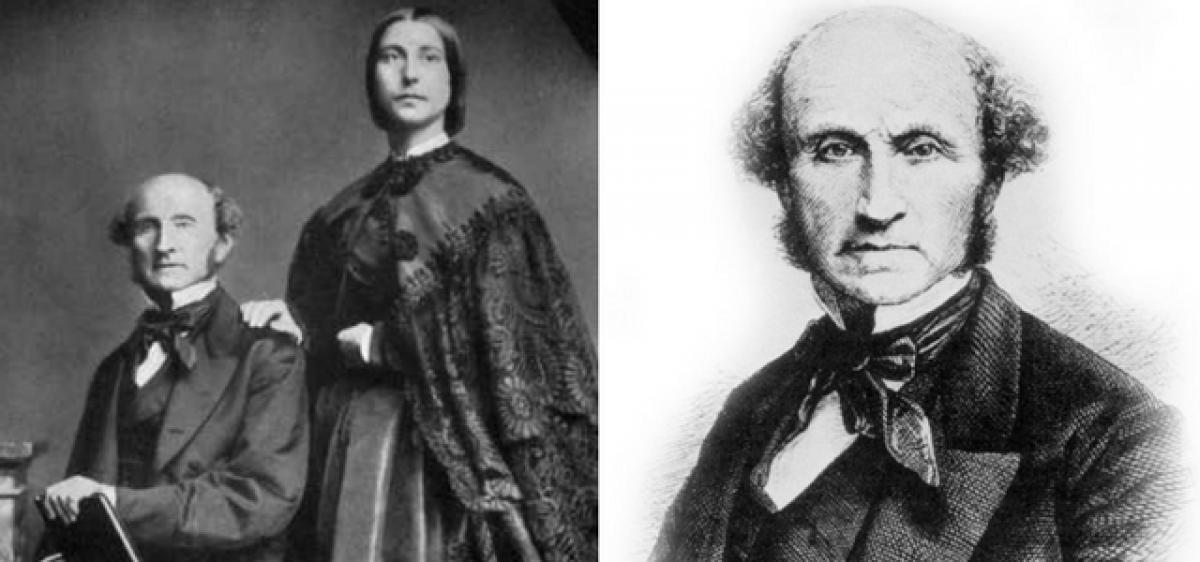Liberalism’s prophet

The concept of liberalism and its key facet of tolerance are most vital to human freedom and development, but in these treacherous times, they are under unflinching attack by \"right-thinking\" sections of society in thrall to \"infallible and all-knowing\" leaders. But do they even understand these concepts or are only conditioned to abuse them virulently?
Scourge of small minds and tyranny of thought
The concept of liberalism and its key facet of tolerance are most vital to human freedom and development, but in these treacherous times, they are under unflinching attack by "right-thinking" sections of society in thrall to "infallible and all-knowing" leaders. But do they even understand these concepts or are only conditioned to abuse them virulently?
"How can great minds be produced in a country where the test of a great mind is agreeing in the opinions of small minds?" asked modern liberalism's British creator John Stuart Mill, who stressed that political freedom was incomplete without its social component.
For him, the only freedom "which deserves the name is that of pursuing our own good in our own way, so long as we do not attempt to deprive others of theirs, or impede their efforts to obtain it".
Acknowledged with developing the venerable idea of liberalism as a political philosophy, Mill (1806-73) was a most remarkable thinker, who combined a bureaucratic day job with a rather radical outlook, made light of social convention and became the first parliamentarian to call for extending the franchise to women.
And we must not disregard him merely due to the fact that he worked for the East India Company in London, for the thought of the "most influential English-speaking philosopher of the 19th century" was shaped by not only his rather thorough education but also his own life experiences.
The son of philosopher and historian James Mill, who was a key disciple of "Utilitarianism" founder Jeremey Bentham, Mill's education started quite early with him being taught Greek at the age of three. In the next five years, he mastered key texts along with other history as well as arithmetic, physics and astronomy.
At eight, he began the study of Latin, the works of Euclid, and algebra, as well as being "schoolmaster" to his younger siblings. At 12, there was a further lot including political economy... there was more but this should give a picture.
But it had a cost for Mill, who was a proper scholar even before he grew out of his teenage years, for he had a nervous breakdown when 20, had thoughts which Sigmund Freud (who would not be even born till two decades later) would find most familiar and rebelled against the utilitarian philosophy of "the greatest good of the greatest number". All this as well as his rather novel romantic life can be found in his frank "Autobiography" (1873) but more key is his theory of liberalism.
Arrived at with some help from his long-time companion Harriet Taylor -- a married woman who eventually became his wife, though they were fated not to have even a decade together -- it is expounded in "On Liberalism" (1859).
Unlike most philosophical treatises, it is quite concise -- five chapters spread over 130 pages covering liberty of thought and discussion, of individuality as an element of well-being, of the limits of social authority and applications. Mill writes rather simply (though that also means quite a bit of Latin phrases and a great deal of history).
Noting -- quite presciently -- that this social control is an issue "which profoundly influences the practical controversies of the age by its latent presence, and is likely soon to make itself recognised as the vital question of the future", he termed social tyranny "more formidable than many kinds of political oppression" since it "enslaves the soul itself".
"Protection, therefore, against the tyranny of the magistrate is not enough: There needs protection also against the tyranny of the prevailing opinion and feeling; against the tendency of society to impose, by other means than civil penalties, its own ideas and practices as rules of conduct on those who dissent from them; to fetter the development, and, if possible, prevent the formation of any individuality not in harmony with its ways..."
And Mill, as per biographer Richard Reeves, did not only seek "absence of restraint on free speech" but "dissent, and argument and disagreement". "Indeed, he says that if there isn't an opposing view, we should conjure one up. He says that even the Catholic Church appoints a Devil's Advocate to argue against someone being canonised as a saint," said Reeves in a "Philosophy Bites" podcast.
Mill's touchstone was simple: "That the only purpose for which power can be rightfully exercised over any member of a civilised community, against his will, is to prevent harm to others. His own good, either physical or moral, is not a sufficient warrant."
What could be more apt? Even if this does not convince the detractors, they will eventually realise -- as history showed in the 20th century -- that the path they claim to tread with such pride only leads to party congresses where you stop applauding at your risk, conformity enforced by a secret police and eventually the gulag/concentration camps.
Is it worth it?

